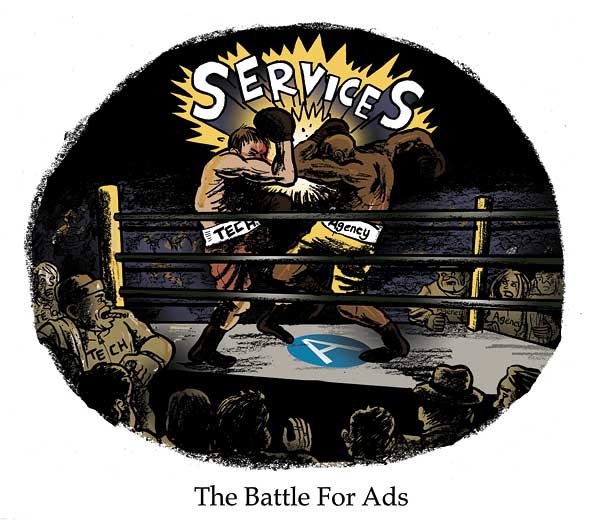Fresh Legs
HouseFresh, a website dedicated to reviewing air purifiers and household air quality products, was one of the first (of a great many) long-tail consumer review sites to lash out at Google after its core update in March of last year.
At the time, traffic to those specialty sites was being effectively siphoned off by big-name publishers that had created their own product review sites monetized by affiliate sales.
But Google pulled the lever back on that category of affiliate sites, too, while tweaking its algo to favor “forums” and “authentic reviews.” The practical upshot was a huge surge in traffic to Reddit in particular.
HouseFresh is taking aim at Google Search again, this time by examining the quality of its AI Overviews (AIOs) when it recommends and describes air purifiers.
What it finds is a sycophantic AI salesman who describes things glowingly, often in error, and will in fact recommend products that don’t exist if it seems like you might buy it.
Funnily enough, writes the air quality review site, Google’s organic searches do a fair job of presenting more reliable reviews and descriptions. But that’s only for the brave souls who scroll past the AIO and the sponsored placements.
Upfront, Down Slow
TV’s upfront negotiations are moving at a crawl this year, Digiday reports.
One sticking point is the discrepancy between Nielsen ratings and other currencies, along with programmers’ own metrics.
Programmers are now DTC streaming companies and possess their own first-party viewership data. But adding this data is surprisingly thorny. NBCUniversal now appends some of this data to some of its own reports. But Amazon caused a ruckus when it started reporting its own viewership data for Thursday Night NFL games a few years ago, with numbers that vastly exceeded the official Nielsen numbers. The following NFL season, Amazon was going to provide numbers to Nielsen, but rival programmers delayed the move, protesting that whoever moves first will unfairly benefit.
The Nielsen dynamic isn’t new, but a long-running contention for broadcasters who believe their ratings are underestimated. Although, in the past week, a new Adalytics report documented millions of total views for illicit live NFL and NCAA football games on YouTube. Those people are watching the linear stream, including the ads, but wouldn’t appear in the ratings.
Another hangup this year is the number of enterprise brands that have pulled recent agency switcheroos, according to Digiday. The result is confusion over which agency is even responsible for upfront negotiations.
“There’s so many different dynamics now, it’s difficult to say that there is kind of one trend that’s driving everything,” says one holdco head of investment.
Software Fortresses
The biggest ad platforms model themselves as “content fortresses” – souped-up walled gardens built around exclusive media.
But is the same idea coming for mar tech software?
For decades, the mar tech ecosystem has evolved around ideas of open integration. Even if Salesforce has a point solution or product, it might also integrate with a roster of vendors that do the same task. Companies like LiveRamp, Atlassian (which makes Jira, among other software), Docusign and the design and business workflow company Figma all integrate with big mar tech firms.
But the expansion of data-hungry AI startups has API-based mar tech on the defensive, The Information reports. The AI startup Glean aims to simplify business tasks and does so partly by drawing on the data of products like Slack, which is owned by Salesforce. Until a month ago, when Salesforce stopped allowing Glean to export or store Slack data, even when customers opted to do so.
“Even if the moves succeed in slowing down potential AI threats,” writes the Information, “they could sour customers on traditional enterprise apps and prompt them to seek alternatives – the very thing these incumbents are trying to prevent.”
But Wait! There’s More
The IAB released its digital out-of-home measurement guide. [IAB]
Microsoft and OpenAI are trying to lock in enterprise deals with big ad agencies. [Adweek]
The AI boom is forcing data companies to consolidate and prioritize interoperability. [TechCrunch]
Amazon Prime Day prices don’t always reflect real discounts – but publishers are incentivized to promote the deals anyway in order to earn affiliate revenue. [Popular Info]
Reinventing the Minnesota Star Tribune. [The Rebooting]
After a recent update, xAI’s Grok chatbot is spouting antisemitic conspiracy theories and praising Hitler. [Axios]
A federal appeals court has struck down the FTC’s proposed “click-to-cancel” rule days before it would have taken effect. [The Guardian]
You’re Hired!
Seedtag hired former Criteo President and CRO Brian Gleason as its new CEO. [post]
Dave Clark, former head of FreeWheel and CEO of TripleLift, joined Cast Iron Media as CEO. [release]
Angela Tangas is the new global CEO of Oliver, the Brandtech Group’s in-housing agency. [release]
JWP Connatix hired Kenneth Rona as its first chief AI officer. [release]
Spectrum Reach promoted Mary Pouliopoulos to SVP, customer experience. [release]
Thanks for reading AdExchanger’s Daily News Roundup. Want it by email? Sign up here.












